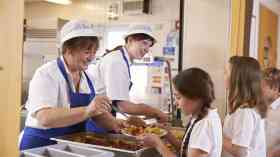
Thinking about planning a school trip? Just do it!
School Travel Forum shares advice on how you can make sure your overseas school trip is as enjoyable for you as it is for your students.
As a pupil, school trips just happened. We took notes home, packed bags and excitedly boarded buses, trains, ferries or planes. As a teacher, the idea of taking 30 or more students away can be a daunting prospect.
School Travel Forum is the leading association for school travel and tour operators. Here they share their advice on how you can make sure your overseas school trip is as enjoyable for you as it is for your students.
Start planning early
The earlier you start planning, the better the experience will be and the more confident you will feel.
Ideally, you should start planning nine to 12 months in advance of your desired departure date. For long-haul trips or more complex tours, the advice is to start planning at least 18 months in advance.
Planning early means you are more likely to get the accommodation and excursions that you want on the desired dates.
You may also benefit from early booking rates or special offers. You will have more time to get information out to (and back from) parents and carers. There will be adequate time to complete any risk assessments and checks.
You will also be able to incorporate the destination or activities that you will be doing into your lessons so it becomes an integral part of your student’s learning experience.
Additionally, there is time for other teachers at school to adjust their teaching plans so students on the trip don’t miss assessments or crucial subject information.
Think about what, not where
Decide what your desired learning outcomes are for the trip. Do you want to build teamwork and communication skills, or do you want your students to build their understanding of a period in history? Maybe you want to develop sporting or language skills.
Think laterally, too. You could achieve multiple objectives with a two-centre stay, or one trip could support several different subject areas. Once you have established your objectives talk to a school tour provider, they will help and advise on the best location and/or the best itinerary to achieve these.
Try something new
It can be easy to continue with the tried and tested route by returning to the same country, visiting the same places, following the same programme year after year. But is the traditional experience the best option for the group this time round?
No group of students is the same, the curriculum evolves, and new opportunities arise – think exhibitions, museums and attractions. A trip that was set up five or six years ago might not be the best experience for the group you intend to take next.
Again, a good tour provider will be able to advise you on what is available, what is possible and will build the best trip for your group.
When to go
Many schools have a dedicated ‘residential’ or ‘activity’ week towards the end of the summer term. While this can make lesson and curriculum planning easier, it may not support your planned learning objectives.
Organising a school trip early in the academic year means you can incorporate the learning gained during the trip within your lessons, making the trip part of the whole learning experience.
Spending time away together can also improve how students relate to each other and work together. You will also get to know your students much better too. An autumn or spring trip means you have time to capitalise on these relationships.
Setting a budget
Many factors influence the cost of a residential - travel distance, mode of transport, duration, activities and so on. At a time when school and home budgets are stretched, there are several ways you can ensure best value.
Depending on the nature of the trip, taking a group away during less popular times, such as January, March or November, can help to reduce accommodation and transport costs.
Look at covering multiple subject areas within one trip. A trip to northern France for example can encompass History, Modern Foreign Languages and Art, while Washington offers the chance to explore Politics, Art and Economics/Business.
Consider the duration of your trip. Organising an early departure one day and late return the next means your students can enjoy two whole days somewhere like France, Belgium or Germany and only incur one night of accommodation costs.
Wherever you decide to go, make sure you examine the quoted price carefully. Does it include all costs – what about lunch or dinner on the journey out or return? Are you planning any excursions whilst you are away and if so, are the costs for these activities included? As well as ticket costs, there may be additional transport costs, so check if the quote covers this.
The best way to make sure that you have factored in all costs is to use a school tour provider. They will outline exactly what is included in the trip price and if there are any extras that the school/parents need to be aware of.
Once you know what the trip will cost, you can look at ways to cover some or all of these costs. Students could hold fundraising activities – you could talk to your school’s PTA about helping with this. Or you could set up staged payments for parents/carers.
Depending on the nature of the trip, there may be trusts or grants that you could apply to for funding support or local businesses may like to sponsor places.
By starting your planning early, you will have time to ensure the trip is financially accessible and affordable to your pupils.
Keeping parents informed
Make sure you give parents/carers plenty of notice about upcoming trips, and provide them with enough information so they can make a decision. Include a brief overview of the trip - cost, dates, times, venue, details of staff accompanying the trip, destination and purpose of the trip.
Consider holding an information evening where you can talk through the trip - what their children will be doing, how the trip supports in-classroom learning, details of the travel company (if relevant), payment plans, any fundraising ideas etc.
Ensure parents and carers have all the necessary dates – for completing forms, payment schedules etc. Make it clear if any payments are refundable or not should a child withdraw at a later stage.
Once you have commitment from parents and carers, send regular communications. You could time these to coincide with payment reminders. Here are some examples of what you could include with your communications: a copy of the itinerary, a kit list, and an overview of the standard of behaviour expected or a behaviour agreement.
Explain if mobile phones will be permitted on the trip or if there will be any restrictions aroung their use. Detail key timings (departure and arrival) and emergency contact numbers and ask for any necessary documentation (passports, visas etc).
Enlist support
There’s no denying that organising a school trip takes time and effort. You can spread the load by involving colleagues and there are a wealth of resources available to help guide you through the planning process.
Talk to colleagues and ask for their experiences or recommendations. If your school has an education visits co-ordinator, they will be able to help you complete the necessary paperwork.
Look for the LOtC Quality Badge – the Department for Education recommends that if a school is using an external provider for an educational visit, they choose one that holds the LOtC Quality Badge. All School Travel Forum members hold this award.
The Outdoor Education Advisers’ Panel website has checklists, guidance and advice for planning educational visits and residentials.
School residentials and trips provide students with opportunities that just can’t be achieved in the classroom. They help students to grow emotionally and become more independent. Being part of this journey is as rewarding for teachers as it is for the students themselves. So if you are thinking of planning a residential, just do it!
Further Information:Latest News
04/11/2025 - 09:55
The policy introduces the new Chief Regulator’s Rebuke - a new tool which can be used when an awarding organisation is found to have breached rules, but not in a way that warrants a financial penalty.
03/11/2025 - 10:04
The government has launched a new campaign supported by Sport England that aims to help parents discover simple ways to build movement into daily life during the winter months.
03/11/2025 - 09:55
Nearly eight in ten UK teachers have had to rethink how they set assignments because of Artificial Intelligence (AI), according to a new British Council survey.
31/10/2025 - 10:12
A growing number of UK children are now eligible for Free School Meals (FSM), yet most still aren’t taking advantage of them on a daily basis, new research reveals.
30/10/2025 - 01:28
In the wake of the Raac crisis, the DfE spent £5 million on research into the condition of school buildings, which is due to conclude in spring 2026.







